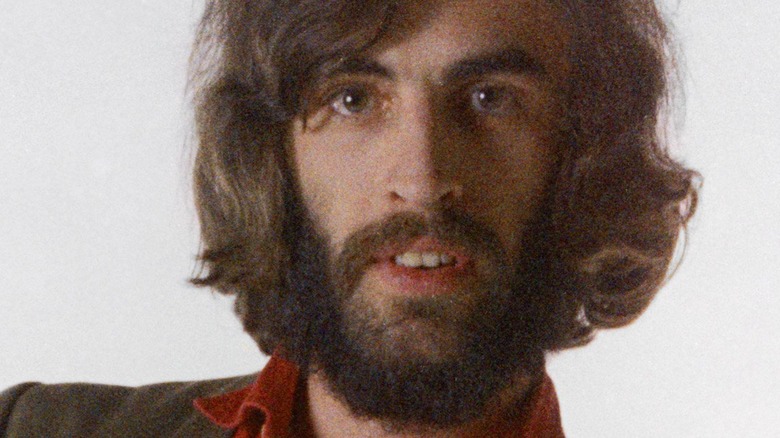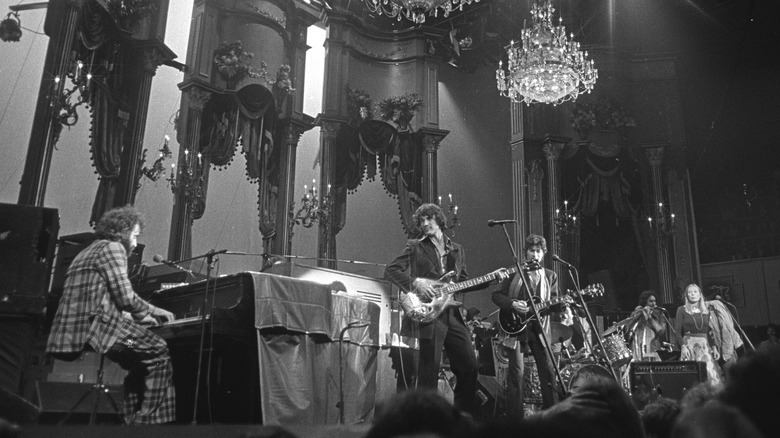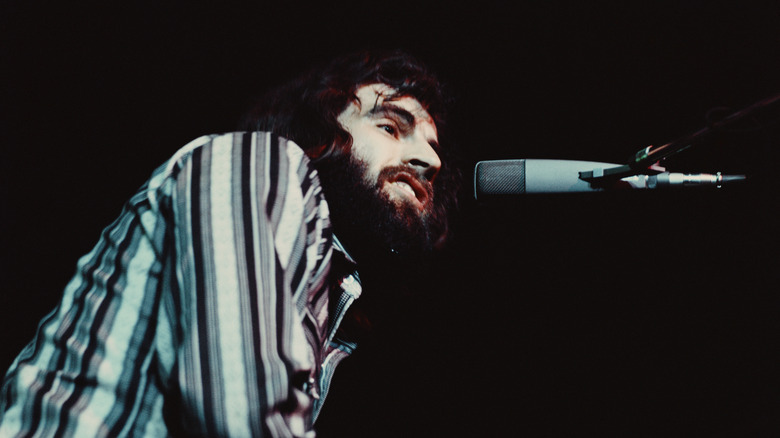The Tragic Death Of The Band's Richard Manuel
Richard Manuel was a singer, songwriter, and pianist for the folk-rock group, The Band. He is remembered as a supremely talented yet tortured soul whose demons eventually got the best of him.
The Band got its start as The Hawks, a backing band for Ronnie Hawkins in Canada in the early 1960s. Later they became the backing band for Bob Dylan until finally, they broke out on their own, aptly naming themselves simply, The Band.
The members were Robbie Robertson, Rick Danko, Garth Hudson, Levon Helm, and Manuel. They created a distinct style that relied heavily on the rich roots of the American southern traditions of storytelling, even though all but Helm were Canadian. Manuel joined The Hawks when he was just 18-years-old. According to Chicago Now, he was already an alcoholic.
Still, his musical chops were impressive. Other musicians were in awe of him, even as they worried for his well-being because of his drug and alcohol abuse.
According to Live for Music, Eric Clapton once said, "I was madly in love with Richard ... At the time, [1975] we had the same trouble ... I felt insecure and he was clearly insecure, and yet he was so incredibly gifted ... For me, he [Richard] was the true light of The Band. The other guys were fantastic talents, of course, but there was something of the holy madman about Richard. He was raw. When he sang in that high falsetto the hair on my neck would stand on end. Not many people can do that."
Richard Manuel sobered up for a while, but relapsed
Unfortunately, the drug and alcohol abuse was part of the reason the group split. Robbie Robertson told The Guardian he put together "The Last Waltz," The Band's now infamous 1976 farewell concert, in part to possibly help diminish the constant exposure to booze and drugs that accompanied the rock 'n' roll lifestyle in the 1960s and 1970s.
Robertson told The Guardian he ended the band partially "because of my deep concerns for Richard [Manuel]'s wellbeing. It was shattering to me when Richard died. I was afraid of this for many years. The idea was to be protective. Because although we were all riding in the caravan, some people were much more vulnerable to the disease of addiction than others."
According to Rocks Off, Manuel went to rehab and sobered up for a few years, and in 1983 The Band got together again, sans Robertson. Though their reunion shows were reportedly a success, they were playing smaller venues and not making as much money as they once had. Manuel relapsed back into alcoholism and drug abuse. To make matters worse, Albert Grossman, a music manager who'd worked with The Band and many other big folk-rock acts during the 1960s and 1970s died in January 1986, sending Manuel into a depression, according to Chicago Now.
Richard Manuel didn't die of a drug overdose
According to The New York Times, it was March 4, 1986, when the reunited members of The Band played a show in Winter Park, Florida near Orlando at the Cheek to Cheek Lounge. Afterwards they went back to their hotel room at the Quality Inn next to the venue, and Manuel stayed up talking with Helm for a couple of hours. Chicago Now reported that at about 2:30 a.m. Manuel told Helm he needed to get something from his hotel room but he never returned.
Manuel took his life sometime between 2:30 and 3:30 a.m., per The New York Times. He wasn't found until about noon the next day when his wife, Arlie, discovered his body. A 1986 news article from UPI said that he was legally drunk and had cocaine in his system, but those substances didn't cause his death.
Shashi Gore, the Orange County deputy medical examiner, said of the toxicology report, "I want to make it clear that this has nothing to do with the cause of death. He died plain and simple from hanging," UPI reported.
According to Find-a-Grave, his remains were laid to rest in his hometown of Stratford, Ontario, Canada. He was 42-years-old.
If you or anyone you know is having suicidal thoughts, please call the National Suicide Prevention Lifeline at 1-800-273-TALK (8255).


